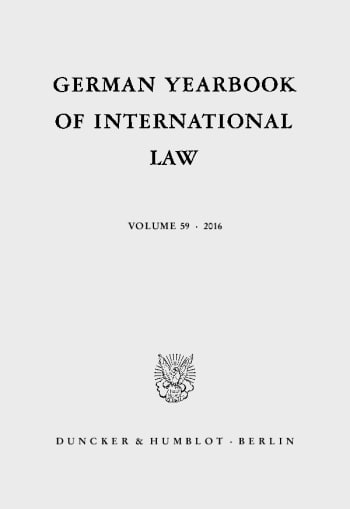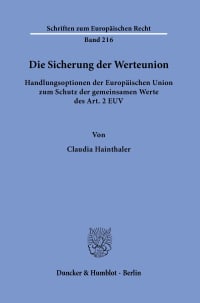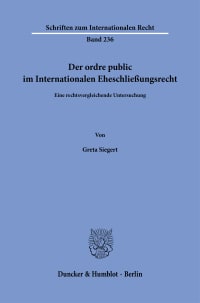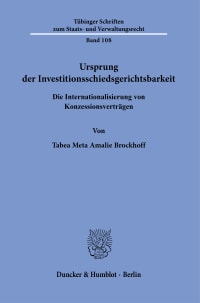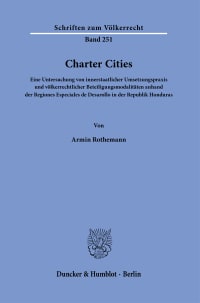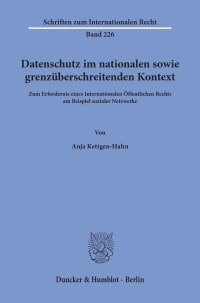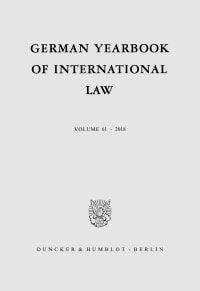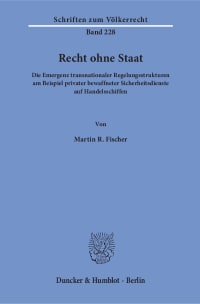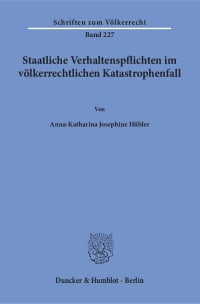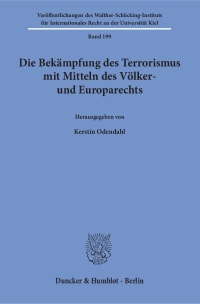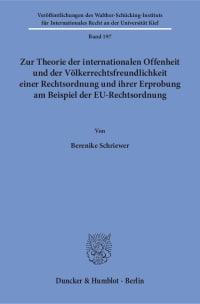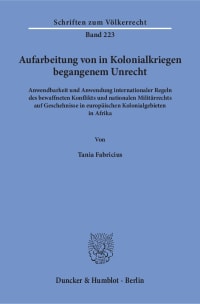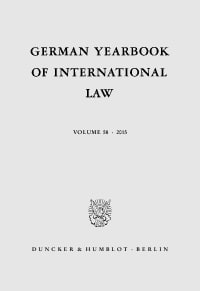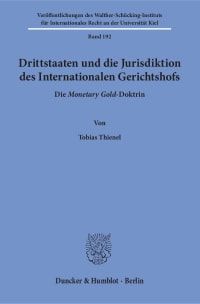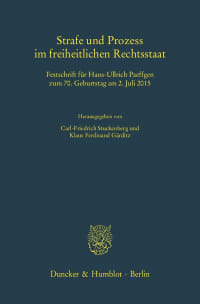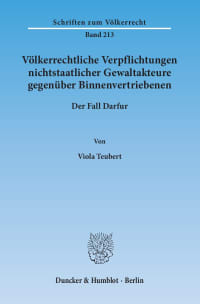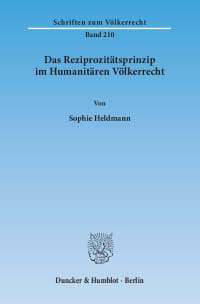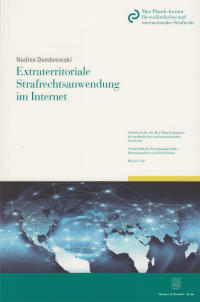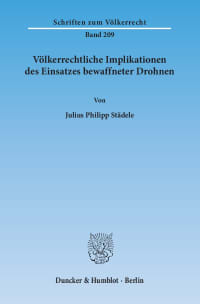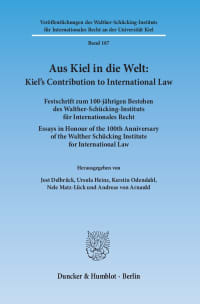Vol. 59 (2016)
Beschreibung
The German Yearbook of International Law, founded as the Jahrbuch für Internationales Recht, provides an annual report on new developments in international law and is edited by the Walther Schücking Institute for International Law at the Kiel University. Since its inception in 1948, the Yearbook has endeavored to make a significant academic contribution to the ongoing development of international law. Over many decades the Yearbook has moved beyond its origins as a forum for German scholars to publish their research and has become a highly-regarded international forum for innovative scholarship in international law. In 1976, the Yearbook adopted its current title and began to publish contributions written in English in order to reach the largest possible international audience. This editorial decision has enabled the Yearbook to successfully overcome traditional language barriers and inform an international readership about current research in German academic institutions and, at the same time, to present international viewpoints to its German audience. Fully aware of the paramount importance of international practice, the Yearbook publishes contributions from active practitioners of international law on a regular basis. The Yearbook also includes critical comments on German state practice relating to international law, as well as international reactions to that practice.
Inhaltsübersicht
FORUM: Paris Climate Agreement
Jorge E. Viñuales
The Paris Agreement on Climate Change: Less is More
FOCUS: Frozen Conflicts: How Does PIL Deal with Them?
Thomas D. Grant
Three Years After Annexation: Of ›Frozen Conflicts‹ and How to Characterise Crimea
Milena Sterio
Self-Determination and Secession Under International Law: Nagorno-Karabakh
Christopher J. Borgen
Moldova: Law and Complex Crises in a Systemic Borderland
Enrico Milano
Unfreezing and Settling the Conflict over Kosovo
Juan Soroeta
The Conflict in Western Sahara After Forty Years of Occupation: International Law versus Realpolitik
Nikos Skoutaris
The Paradox of the Europeanisation of Intrastate Conflicts
GENERAL ARTICLES
Andreas Kulick
From Problem to Opportunity?: An Analytical Framework for Vagueness and Ambiguity in International Law
Lando Kirchmair
What Came First: The Obligation or the Belief? A Renaissance of Consensus Theory to Make the Normative Foundations of Customary International Law More Tangible
Paul Behrens
The Crime of Genocide and the Problem of Subjective Substantiality
Philipp Janig and Sarah Mansour Fallah
Certain Iranian Assets: The Limits of Anti-Terrorism Measures in Light of State Immunity and Standards of Treatment
Christoph Schewe
Clearing Up? Transparency in the Dispute Settlement of International Trade Agreements
Lilian Richieri Hanania
The Social Dimension of Sustainable Development in EU Trade Agreements: Strengthening International Labour Standards
GERMAN PRACTICE
Thomas Giegerich
In Germany International Law may be Honoured in the Breach: The Federal Constitutional Court Gives the Legislature Carte Blanche to Override Treaties
Felix Telschow
»Gliding O'er All«: Human Dignity and Constitutional Identity in the Federal Constitutional Court's Recent
Mareike Nürnberg and David Schenk
Deployment of Soldiers for the Protection of Nationals Abroad and Inner-State Justification: The German Federal Constitutional Court's Decision on the Operation of German Military in Libya
Berenike Schriewer
The German Federal Constitutional Court's First Reference for a Preliminary Ruling to the European Court of Justice: A 2016 Follow-Up
Isabell Böhm
Genocide in Rwanda: The Judgment of Frankfurt's Higher Regional Court Against a Former Rwandan Mayor of 29 December 2015
Jens Kaiser
German Chairmanship of the Organization for Security and Cooperation in Europe in 2016
Avril Rushe and Joschka Peters-Wunnenberg
Are the Maghreb States ›Safe‹?
Sebastian Tho Pesch
Finding a Solution Without Addressing the Problem: The 2014 Ems-Dollard Treaty
Marcus Schladebach
The Germanwings Disaster: Legal Debates and Consequences
Thomas Hoppe
The German Federal Court of Justice Marks a Possible Way for the CJEU's Preliminary Ruling: The Compatibility of Investment Arbitration Clauses in Intra-EU Bilateral Investment Treaties with European Union Law
BOOK REVIEWS
Bücher aus denselben Fachgebieten
Kontakt
-
+49 30 / 79 00 06 - 0
-
Bestellinformation
-
Versandkostenfrei innerhalb Deutschlands.
-
Für Kunden aus EU-Ländern verstehen sich unsere Preise inklusive der gesetzlichen Mehrwertsteuer und – außer bei digitalen Publikationen – zuzüglich Versandkosten. Für Kunden aus Nicht-EU-Ländern verstehen sich unsere Preise als mehrwertsteuerfrei und – außer bei digitalen Publikationen – zuzüglich Versandkosten.
-
-
Newsletter
